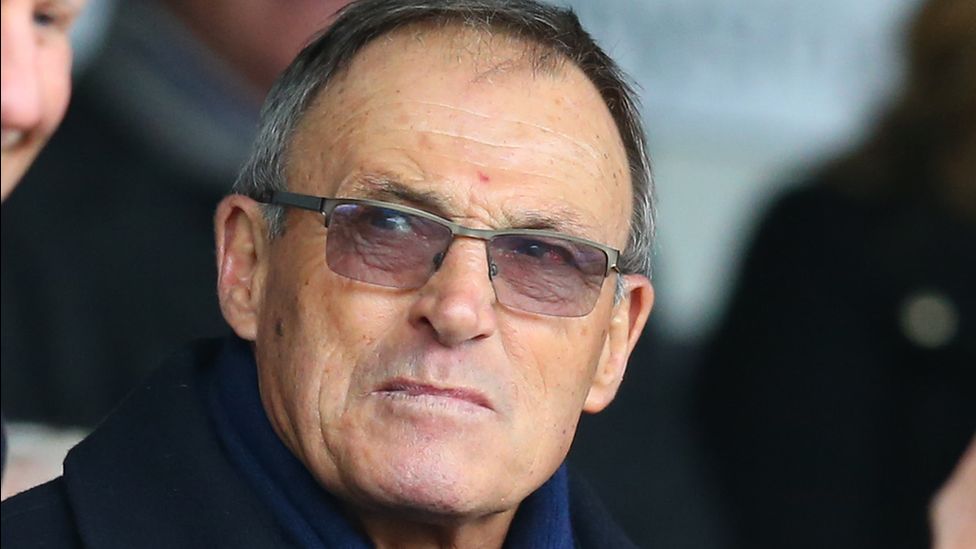
Dario Gradi received the MBE after serving as Crewe Alexandra’s manager for 1,359 matches
By Andy Giddings & Tim Wedgwood
BBC News
Former Crewe Alexandra manager Dario Gradi has been stripped of his MBE amid allegations he failed to act on rumours of sexual abuse.
A review in 2021 found he “should have done more” to look into claims about coach Barry Bennell, who was convicted of abusing boys at the club.
A list published by the Cabinet Office earlier revoked the honour and gave the reason as professional disbarment by the Football Association (FA).
Gradi said he accepted the decision.
It comes after Bennell’s victims and the Offside Trust, which represents some of them, called for Gradi’s MBE to be removed.
Barry Bennell worked as a youth coach at Crewe Alexandra
Bennell, who worked at Crewe and Manchester City in the ’80s and ’90s, is serving a 34-year sentence for 50 charges of historical child sexual abuse.
He repeatedly abused boys, some up to 100 times, while promising to further their careers.
Gradi, now 82, was suspended in 2016 pending an investigation by the FA and retired as director of football at Crewe three years later.
He denied wrongdoing and the 2021 review concluded he “was not aware of any allegations of abuse by Bennell and did not see anything done by Bennell”.
But it said he should have investigated rumours about the coach, monitored what was going on, and spoken to the boys who were staying with Bennell to check they were OK.
The FA subsequently said Gradi’s ban from football was for life, although he said the ban only covered “certain specified activities with players under the age of 18 years”.
How are honours withdrawn?
There is an expectation that those who receive an honour are, and will continue to be, good citizens and role models.
Living recipients can have the honour withdrawn if they fail to meet that expectation, for instance because of a criminal conviction or bringing the honours system into disrepute.
They can also be withdrawn if a recipient “has been censured or struck off by the relevant regulatory authority or professional body, for actions or failures to act, especially which are directly relevant to the granting of the honour”.
A Forfeiture Committee will investigate in these instances and if it decides the honour should be forfeited, that recommendation is submitted through the Prime Minister to the King.
If the King gives his approval, a notice of forfeiture is usually placed in the London Gazette, as it has been in the case of Dario Gradi.
The MBE has been withdrawn on more than 90 previous occasions.
Gradi confirmed he had received a letter saying his MBE was being withdrawn and said: “That’s always been the stigma on my career, that I failed to see what [Bennell] was doing and deal with it.
“But that’s in the past and I can’t right the wrong there, so I’ve just got to get on with it.”
He apologised again to the victims and their families for failing to spot the abuse and said when he received notification “it was a difficult letter to receive because it was totally unexpected”.
Gradi said he appreciated the honour, which he received in 1998 for services to football, but had “no anger” about its removal.
Crewe Alexandra said: “All matters relating to Mr Gradi’s MBE are a private concern.”
It also said: “Crewe Alexandra has apologised unreservedly and is sorry for all the hurt and suffering caused by Barry Bennell.”
Representatives of the Offside Trust said they did not wish to comment.
Follow BBC West Midlands on Facebook, Twitter and Instagram. Send your story ideas to: newsonline.westmidlands@bbc.co.uk
Related Topics
Related Internet Links
The BBC is not responsible for the content of external sites.








